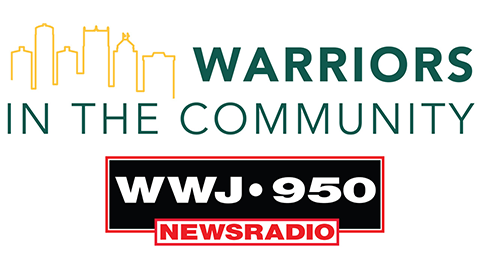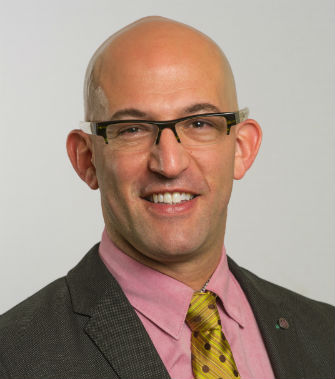
Warriors in the Community is a radio segment that features short, insightful interviews with key figures from Wayne State University about the many ways in which the university and its programs make a positive impact on the metro area and on the lives of Detroiters.
Our sixth episode features an interview with Dr. Phil Levy, the Edward S. Thomas Endowed Professor in the Department of Emergency Medicine at Wayne State University and the man in charge of the Wayne Health Mobile Unit program, in which vehicles equipped with medical equipment and staffed by medical professionals travel to underserved Detroit communities to offer screening for diabetes, high cholesterol, kidney disease and high blood pressure as well as social determinant needs. The Wayne Health Mobile Units represent the future of healthcare, providing ‘care your way, where you live and work,’ with the long-term goal of improving population health outcomes.
Transcript
Intro: This is “Warriors in the Community” brought to you by Wayne State University, and now to learn about how Wayne State is positively impacting our community, here is Darrell Dawsey.
Darrell Dawsey: and today I'm with Dr. Phil Levy. He's a professor of Emergency Medicine and associate vice president at Wayne State and the director of the Mobile Health Unit Program. Tell us how the Mobile Health Unit Program came to be.
Phil Levy: It started out during the pandemic when we realized that a lot of folks in the community, especially the Brown and Black communities in and around Detroit, were suffering disproportionately from COVID, and we needed a way to bring care into the community, into the neighborhoods.

Darrell Dawsey: Let's talk a little bit about the roles that these health units play in our community; how many people does the unit serve, and what kind of services does it offer?
Phil Levy: Since we started the program in April, 2020, we've had over 85,000 encounters in the community, which is about 58,000 people. And the reason that there's more encounters in people is because some folks came out for their first vaccination, their second and third vaccination, which brings us to the services we do vaccination services.
We started out doing COVID testing, but we realized when we were getting into the communities, not only could we do COVID services, we could measure blood pressure and draw blood work to look at high cholesterol and kidney function and diabetes risk. And that kept on growing.
Darrell Dawsey: One of the things that this seems to impact, we talk a lot about the urban and racial health gaps; how do these mobile health units help impact that health gap?
Phil Levy: So most importantly, we screen for the factors that lead to the greatest proportion of the health impacts. And folks in Detroit are almost two and a half times more likely to die of heart disease in other locations in the country. And almost all of that traces back to things like high blood pressure, diabetes, high cholesterol, smoking cigarettes, obesity.
So by coming into the neighborhoods and making it very easy to get screened for those things, we can remove the barrier to coming to healthcare, right? This idea that you have to inconvenience yourself to get care that you need, we remove the inconvenience and make it easy as possible.
Darrell Dawsey: Dr. Phil Levy, thank you so much for joining.
Phil Levy: Thank you for having me.
Extro: This has been “Warriors in the Community.” For more Wayne State News, please visit us online at today.wayne.edu/wwj and join us here next Monday at the same time for more warriors in the community.
